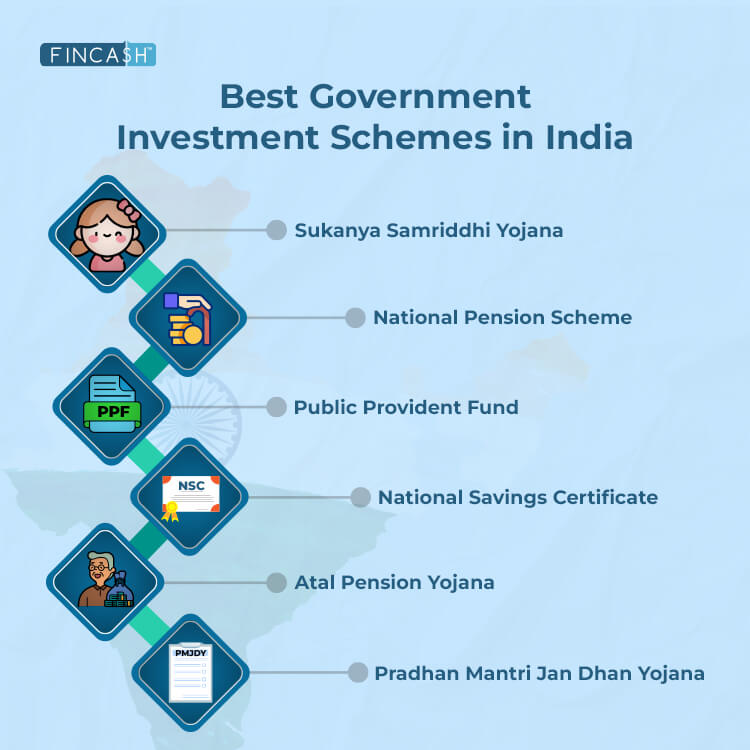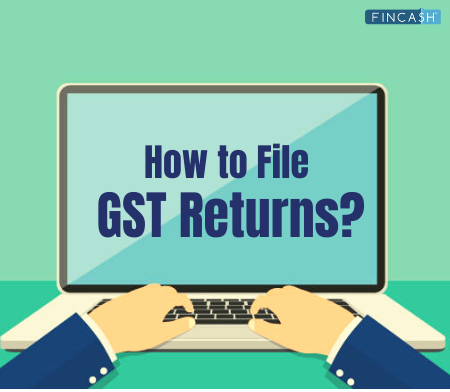
Fincash » Post Office Saving Schemes » High Return Small Saving Schemes
Table of Contents
Top 6 High Return Small Saving Schemes Offered by Government
In order to encourage the savings habit amongst Indians, the government of India has introduced Small Saving Schemes. These schemes are most famously known as Post Office Saving Schemes as these schemes were earlier offered only by the post offices in India. But now the government has authorized some private & public banks to offer these schemes. There are total nine schemes under small saving schemes. Listed down some of the schemes that are currently Offering high returns.
What are Small Saving Schemes?
Small Savings Schemes or Post Office Saving Scheme are very popular in India as people prefer Investing money in instruments backed by the Government of India. These are the schemes that aim at providing secure investments with guaranteed returns. These post office schemes are launched to encourage the savings habit amongst investors. The Post Office Saving Schemes include a bucket is products that offer risk-free returns and good interest rates.

Nine schemes launched under Post Office Saving Schemes are:
- Post Office Savings Account
- 5-Year Post Office Recurring deposit Account
- Post Office Time Deposit Account
- Post Office Monthly Income Scheme Account
- 5- Year Senior Citizen Savings Scheme
- 15-Year Public Provident Fund Account
- National Savings Certificates
- Kisan Vikas Patra
- Sukanya Samriddhi Yojana Scheme
Post Office Interest Rates Table
The interest rates of small saving schemes are decided every quarter by the government.
Here's the list of interest rate, minimum deposit and investment period of all nine saving schemes:
| Small Saving Schemes | Interest Rates (p.a.) (FY 2020-21) | Minimum Deposit | Investment Period |
|---|---|---|---|
| Post Office Savings Account | 4% | INR 500 | NA |
| 5-Year Post Office Recurring Deposit Account | 5.8% | INR 100 Month | 1- 10 Years |
| Post Office Time Deposit Account | 6.7 % (5Yr) | INR 1000 | 1 Year |
| Post Office Monthly Income Scheme Account | 6.6% | INR 1000 | 5 Years |
| 5- Year Senior Citizen Savings Scheme | 7.4% | INR 1000 | 5 Years |
| 15-Year Public Provident Fund Account | 7.1% | INR 500 | 15 Years |
| National Savings Certificates | 6.8% | INR 1000 | 5 or 10 Years |
| Kisan Vikas Patra | 6.9% | INR 1000 | 9 Years 5 Months |
| Sukanya Samriddhi Yojana Scheme | 7.6% | INR 250 | 21 Years |
Talk to our investment specialist
High Return Small Saving Schemes to Invest
Here’s some of the high returns schemes offered by the government of India under Small Saving Schemes.
Senior Citizen Savings Scheme (SCSS)- 7.4 percent
This is the special scheme dedicated to the senior citizens of India. This scheme is fetching an interest rate of 7.4 percent per annum from 2020. An individual who is of 60 years and more may open the Senior Citizen Savings Scheme Account. The maturity period of SCSS is 5 years and the maximum amount in the scheme should not exceed INR 15 lakh.
The interest rate of this scheme is retained by the government after every June quarter. The interest rate on the senior citizens' scheme is paid quarterly. The investment amount will be deducted under Section 80C, and the interest earned is taxable & subject to TDS as well.
Sukanya Samriddhi Yojana Scheme (SSYS)- 7.6 percent
Sukanya Samriddhi Yojana Scheme was launched with an aim to encourage the parents to secure the future for their daughters. This scheme was launched in the year 2015 by the Prime Minister of India Narendra Modi launched under the ‘Beti Bachao, Beti Padhao’ campaign. This scheme is targeted towards the minor girl child. SSY account can be opened in the name of the girl from her birth to any time before she turns 10 years old.
The minimum investment amount is INR 250 and the maximum is INR 1.5 lakh per year. This scheme is operative for 21 years from the date of opening. The current interest rate of SSYS is 7.6 percent per annum.
Kisan Vikas Patra (KVP)- 6.9 percent
Launched in 2014, the Kisan Vikas Patra facilitates people to invest in a long term savings plan. The KVP certificate is offered in multiple denominations that gives flexibility to the customers. The minimum deposit starts from INR 1000, and there is no maximum limit. The current interest rates offered are 6.9 percent compounded annually. There is no maximum limit for investment in this scheme.
Public Provident Fund (PPF) - 7.1 percent
Public Provident Fund is one of the popular savings schemes for retirement savings. Here, the investors get the benefit of EEE - exempt, exempt, exempt - status in terms of income tax treatment. Contributions in Public Provident Fund up to INR 1.5 lakh in a financial year is eligible for tax deductions under Sec 80C of the Income Tax Act. Moreover, investors get a loan Facility and also can make a partial withdrawal. Currently, the interest rates offered for PPF account are 7.1 percent per annum. The PPF accounts come with a maturity period of 15 years.
National Savings Certificates (NSC)- 6.8 percent
This scheme is launched by the Government of India to promote the habit of savings amongst the Indians. The minimum investment amount for this scheme is INR 1000 and there is no maximum investment amount. The interest rate of NSC changes every year. For FY 2020-21 the interest rate of NSC is 6.8% p.a. One can claim tax Deduction of INR 1.5 lakh under Section 80C of the Income Tax Act. Only residents of India are eligible to invest in this scheme.
Post Office Monthly Income Scheme (MIS)- 6.6 percent
In Post Office MIS an individual invests a particular amount and gets an assured monthly income in the form of interest. Under this scheme, the interest that is payable on a monthly Basis (starting from the date of deposit) is deposited in your post office savings account. The current interest rate is 6.6 percent p.a., which is payable monthly. There are no income tax benefits available for investing in this scheme. The maturity period of Post Office Monthly Income Scheme is of 5 or 10 years.
The scheme can be prematurely closed after a year. However, 2 percent of deduction amount will be charged if the account is closed between 1 year to 3 years. And after three years, 1 percent will be deducted.
Top Benefits of Small Savings Schemes
1.Ease of Investment
The given Range of saving schemes is easy to enroll while being best-suited for both urban as well as rural investors. The overall availability as well as simplicity of the given investment options make them a highly preferred savings & investment idea.
2. Documentation & Procedures
Proper procedures and limited documentation in the post office small-savings schemes offer the assurance that the given schemes are safe because the Government of India backs them.
3. Lucrative Investments
The overall investments in post office savings schemes are ideal for long-term. Moreover, the overall investment tenure is around 15 years for the PPF account. Therefore, they tend to be excellent for pension planning and retirement.
4. Tax Exemption
Most of the schemes are eligible for tax rebates under Section 80C. Some of the schemes like the Sukanya Samriddhi Yojana, the SCSS, the PPF, and others have the interest earned exempted from the amount of taxation.
Conclusion
The government has introduced small saving schemes for providing a safe avenue to the general public. They are ideal for investors who wish to invest in small-saving, for long-term, and high return yielding schemes. These options offer lucrative returns while keeping the investments safe. Also the schemes are quite easy to manage.
All efforts have been made to ensure the information provided here is accurate. However, no guarantees are made regarding correctness of data. Please verify with scheme information document before making any investment.












